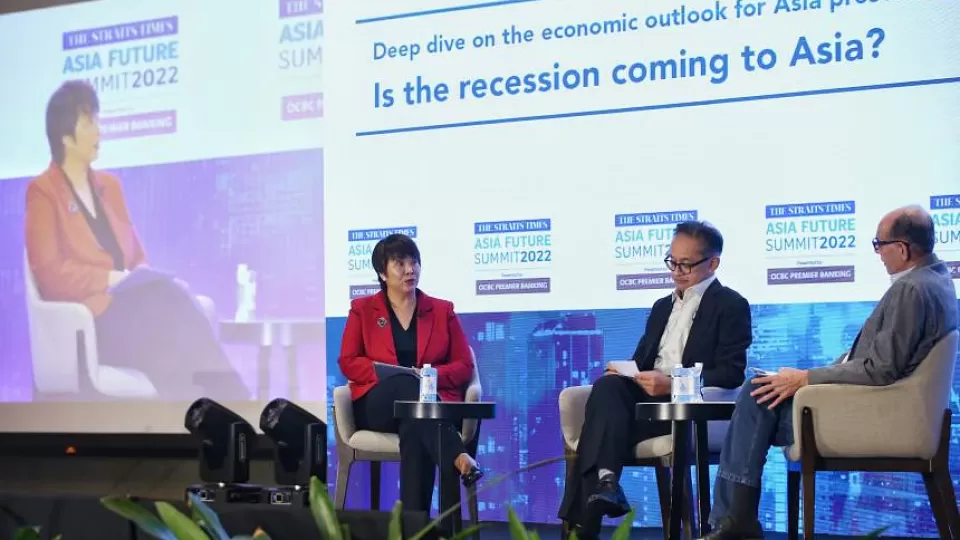November 2, 2022
SINGAPORE – As Beijing faces more economic pressures amid trade tensions with the United States, businesses are increasingly moving operations out of China to South-east Asia – but that should not be viewed as this region taking advantage of the situation.
According to former Indonesian foreign minister Marty Natalegawa, South-east Asia is in itself an attractive destination “because of our inherent potential” for investors, no matter where they come from.
“That’s what has made South-east Asia strong, (being) geopolitically resilient in the past. We have basically enjoyed the comfort level and trust of countries of various natures,” he said. He added that he did not wish for this region to be seen as “scheming”.
He was speaking at a panel session at the Asia Future Summit, organised by The Straits Times, at Raffles City Convention Centre on Tuesday. He discussed Asia’s economic outlook alongside Ms Selena Ling, OCBC Bank’s head of treasury research and strategy.
Dr Marty added: “In general, China, whether it is a fast-growing China or a China of relatively less fast growth – it’s an opportunity for our region. I don’t see it necessarily as ‘either-or’ or zero sum.”
South-east Asian countries such as Vietnam have reportedly benefited from the risks and uncertainties that come with the geopolitical tensions between Beijing and Washington, as more businesses move some of their investments outside of China to this part of the world.
Still, China remains a highly significant player in the Asian economy, Ms Ling said.
“I don’t think anyone is going to walk away and say, ‘We can do away with the Chinese market’ – not when all the economies are very intertwined. But it’s how you tread very carefully between these US-China tensions,” she said.
And while the rivalry between China and the US lends itself to opportunities for this region, Dr Marty said, they also present challenges.
“We’re being pulled left and right. That is why for Asean member states, not only in the political domain, but also in the economic domain, it is extremely important for us to be in the proactive position rather than simply be at the receiving end,” he said.
He cited the significance of the Regional Comprehensive Economic Partnership, a free trade agreement conceived in Bali in 2011 that has all 10 Asean countries as members, alongside five other Asia-Pacific nations.
At the time, Asean felt that it needed an economic agreement “where Asean is the conductor, where Asean is central and the driver”, he said.
During the same session, the panellists also mulled over the possibility of a recession coming to Asia. On a scale of zero to 10 – with zero indicating no chance of it happening – Ms Ling pinned the likelihood down to “four-plus”.
That is because there may be a “globally synchronised slowdown” in all the major markets, even though it is for idiosyncratic reasons, she said.
For example, Europe and Britain are going to be in a recession “very soon”, while China faces challenges that come with its zero-Covid-19 strategy and a troubled property sector, added Ms Ling.
“And Asia is not going to be immune to that. Singapore is not going to be immune to that. So although we have not pencilled in a full-fledged recession for Singapore and the Asian countries per se for 2023, the dial keeps shifting towards the downside,” she said.


